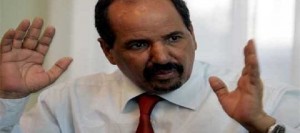 The Polisario separatist front and its Algerian mentors are on a downhill slide in the territorial dispute opposing them to Morocco about Western Sahara.
The Polisario separatist front and its Algerian mentors are on a downhill slide in the territorial dispute opposing them to Morocco about Western Sahara.
The finding was made by neutral Western observers who maintain that the UN Security Council has dealt a blow to Morocco’s opponents challenging Moroccan sovereignty over the southern provinces.
When the UN Security Council adopted unanimously on April 29 resolution 2152 that renews for one year the MINURSO mandate, without changing the nature of its prerogatives or alluding to any human rights monitoring mechanism, the UN executive body has confirmed that it has turned its back on the Polisario and Algeria, underlines Spanish writer and journalist, Chema Gil.
The UN resolution has on the contrary consolidated Morocco’s position on the international political and diplomatic arena, notes Chema Gil, author of “The Polisario: the story of a front standing against human rights and international security.”
In an article published recently on “Iuxsed.com”, an online news outlet, Chema Gil, a connoisseur of the Sahara issue, said that the UN is aware more than ever before that the artificial dispute over the Moroccan Sahara cannot be solved according to the parameters of the 70s of the last century.
That is why the Security Council 15 members hailed the initiatives taken by Morocco to defend human rights as they hailed the seriousness of its efforts to reach a final settlement of the Sahara issue, says the Spanish writer, adding that this is a blow to the enemies of the Kingdom.
In the same vein, the French scholar Christophe Boutin commented that through its new resolution on the Sahara, the Security Council has indirectly refused to engage in “the adventurous scheme” of the pro-Polisario activists and the Algerian rulers and their lobbyists.
Outlining the plans of some sides which have long hoped to see the MINURSO mandate expanded to human rights monitoring, Boutin explained that such an approach would contradict the clear cut policy defined by the UN years ago.
Human Rights are a culture that cannot be imposed from outside but must be developed from inside as Morocco is currently doing, he said.
In a paper published in the latest issue of the monthly bulletin of the Paris-based Observatory of Geopolitical Studies, Boutin also explained that whenever the Security Council speaks of “serious and credible efforts to move the process forward” it refers only to the position of Morocco, which proposed an autonomy plan deemed serious and credible, and never to the Polisario and to its Algerian sponsor.